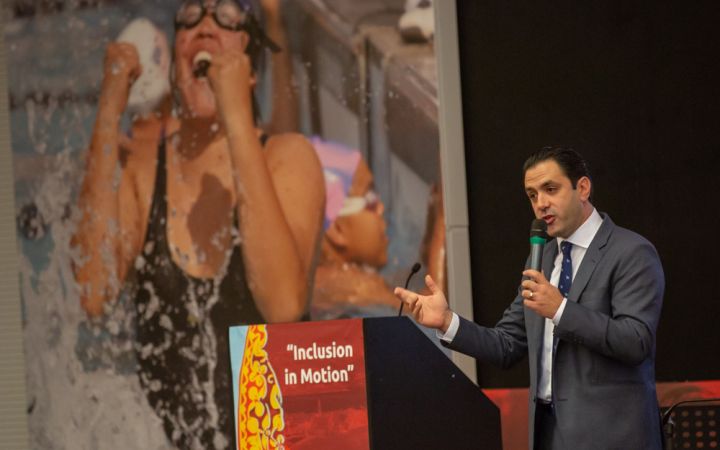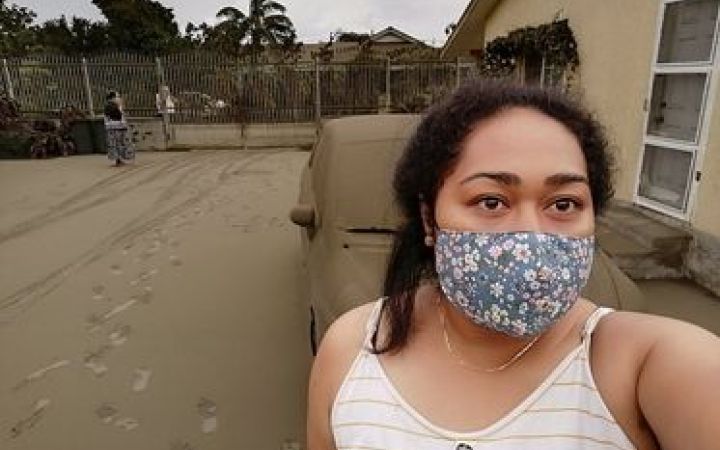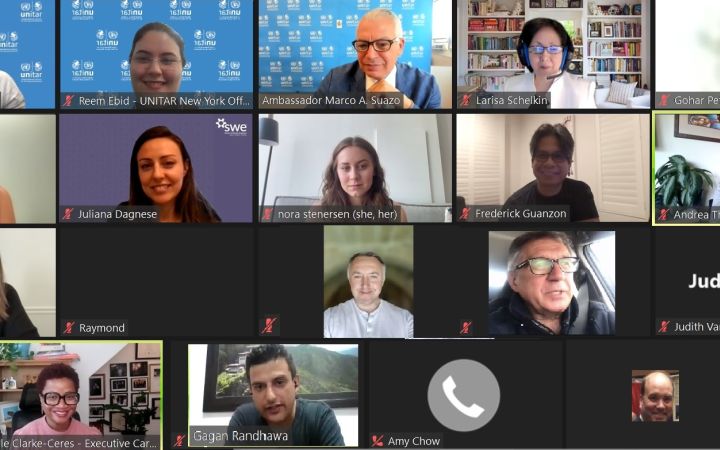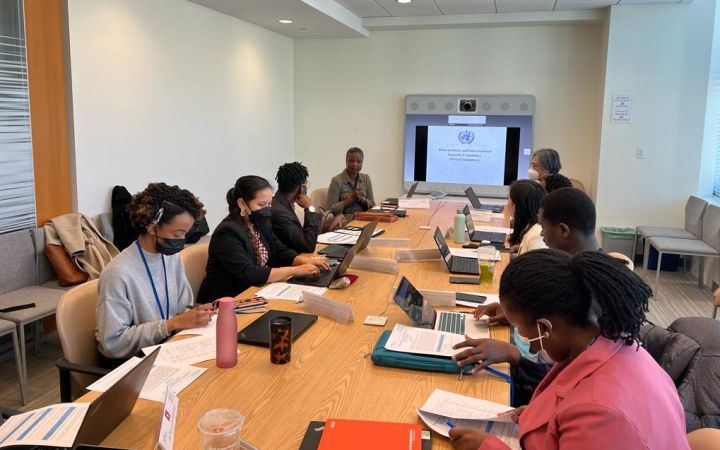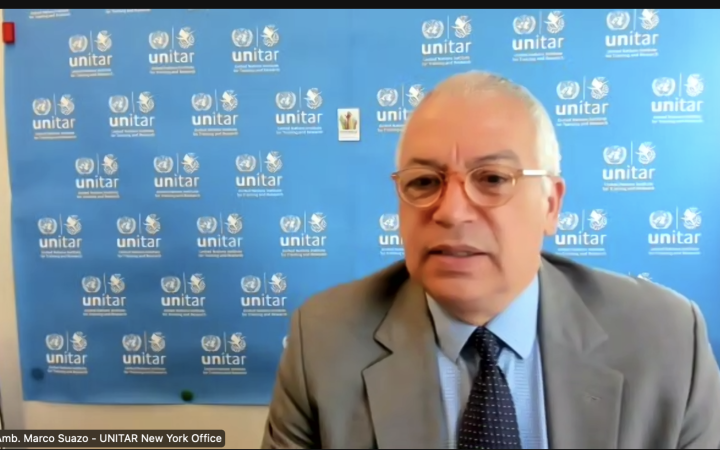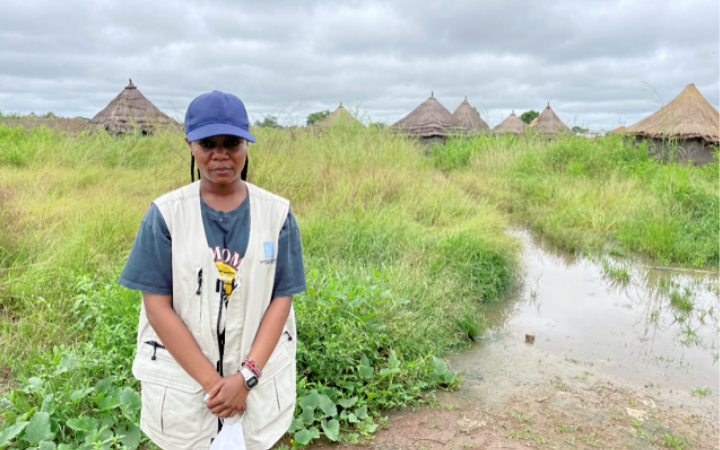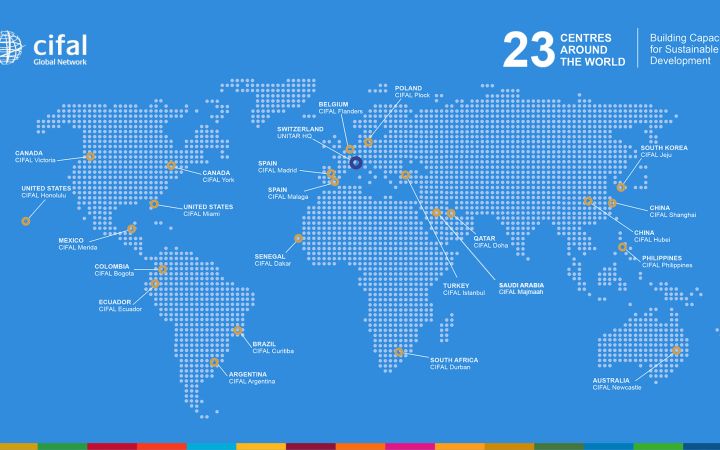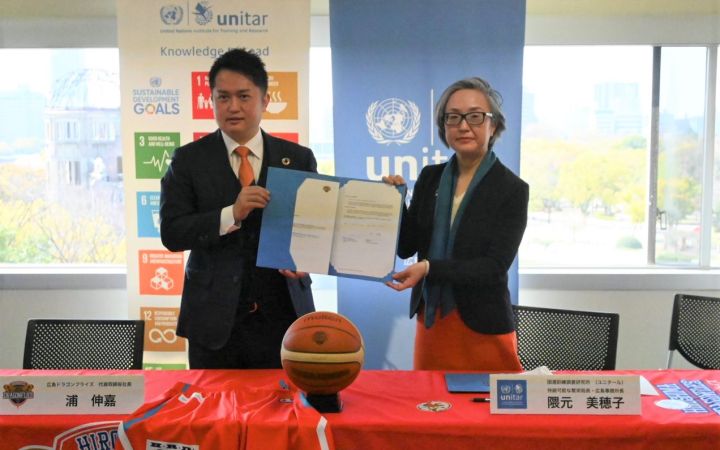Displaying 861 - 870 of 1645
25 April 2022, Geneva, Switzerland – The United Nations Institute for Training and Research (UNITAR) has appointed the President and Managing Director of Special Olympics Europe Eurasia David S. Evangelista to the Advisory Board of its Division for Multilateral Diplomacy. The two-year term takes effect from January 2022 to December 2024.
April 2022 - The volcanic eruption and subsequent tsunami that hit Tonga in early 2022 is a stark reminder of the reality of disasters, and the fact that a disaster, can hit anywhere at any time and render communities vulnerable to massive damages. Mele Moimoi, a disaster risk reduction trainer at Tonga National Council of Churches (TNCC), and an alumna of UNITAR programme in 2021, tells her story.
22 April 2022, New York, United States (Virtual) – The closing ceremony for the Global Diplomacy Initiative Programme (GDI) took place to celebrate the GDI fellows’ graduation at the United Nations Institute Training and Research office in New York. The GDI programme provides a unique training experience for professionals and students in higher stages of education who are interested in the United Nations to understand how it functions while developing technical knowledge and gaining learning experience from experts.
22 April 2022, New York, United States (Hybrid) - The 2022 HOPE Fellowship continues with another session with distinguished high-level speakers to talk about Disarmament, International Security, and the First Committee.
On 20 April 2022, New York, United States (Virtual) – The United Nations Institute for Training and Research (UNITAR) New York office, in partnership with AABGM Inc. - a Microsoft and EC Council certified leading company in the Cybersecurity field, kickstarted the event on Cybersecurity Awareness Training. This is a newly developed training programme having two sessions: (1) Cybersecurity Fundamentals, and (2) Advanced Cybersecurity.
“Guidance from the course was essential in informing my project strategy and there is a lot of change in how I think that has really been informed by the training”.
12 April 2022, Hiroshima, Japan – UNITAR Division for Prosperity invites women in Afghanistan to apply to the Leading Inclusive 4IR: Empowering Women in Afghanistan for the Future of Work through Digital Reskilling programme. The application deadline is 20 April 2022.
8 April 2022, Geneva, Switzerland – The Executive Certificate in Global Business Leadership, created in partnership between UNITAR and Babson College Executive Education, has been designed with working professionals and aspiring entrepreneurs in mind. Therefore, the number of modules has been reduced from six to four to allow for greater flexibility for those who need to juggle many obligations in their personal and professional lives. UNITAR and Babson College are also delighted to announce that the fee of the Executive Certificate has been significantly reduced accordingly, and that a special further discount is available for participants coming from least developed regions.
7 April 2022, Geneva, Switzerland – The CIFAL Global Network (CGN) is UNITAR’s global network of affiliated training centres, uniquely positioned to support leaders on the local level in their quest to advance sustainable development.
7 April 2022, Hiroshima, Japan – Japanese professional basketball team Hiroshima Dragonflies and UNITAR have agreed to work together towards the realization of the Sustainable Development Goals (SDGs). On 7 April 2022, Hiroshima Dragonflies president and CEO Mr. Nobuyoshi Ura and UNITAR Division for Prosperity director Ms. Mihoko Kumamoto signed the memorandum of understanding in a ceremony at the UNITAR Hiroshima Office.


